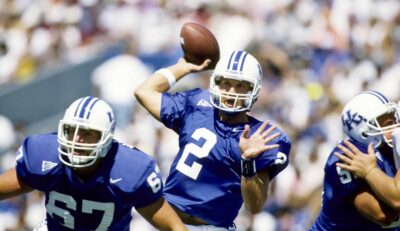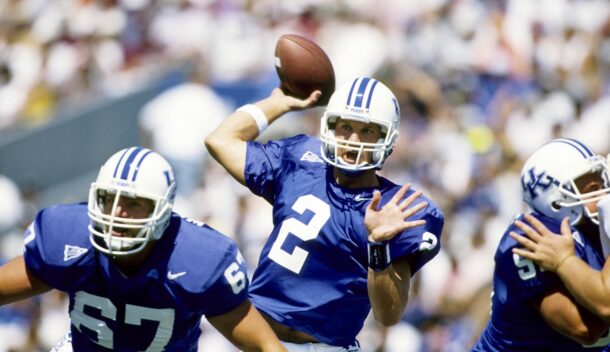NCAA reportedly seeking to delay upcoming vote on Name, Image and Likeness proposal
The NCAA was preparing to vote on the long-awaited Name, Image and Likeness proposal in the coming days but it now appears that may not be happening.
Of course, the NCAA has been dragged kicking and screaming into this discussion, so it’s no surprise to see the organization attempt to call an audible at the final hour.
According to Alan Blinder of the New York Times, NCAA president Mark Emmert recently wrote a letter to the Justice Department seeking a delay to the upcoming vote for the Name, Image and Likeness proposal.
“We believe, as courts have regularly held, that our current amateurism and other rules are indeed fully compliant,” Emmert wrote to an assistant attorney general in a letter obtained by The New York Times. “Whenever we consider revisions to the rules, however, we of course receive input from many interested parties, and we welcome your invitation to consult with the department so that we can hear and fully understand its views as well.”
If you are unfamiliar with the Name, Image and Likeness proposal, it would allow athletes to profit from individual marketing campaigns, such as commercials or local sponsorship deals outside of the deals already negotiated with college programs.
Here is how the NCAA explains Name, Image and Likeness:
“The term has taken on new meaning amid the national conversation. Most simply, “name, image and likeness” are three elements that make up a legal concept known as “right of publicity.”
Right of publicity involves those situations where permission is required of a person to use their name, image or likeness. For example, no permission is required for a newspaper to publish a photo of an athlete playing in a game. The legal copyright would belong to the photographer, not the person pictured.”
In recent months, state and federal officials in government have been proposing NIL bills to allow athletes to get paid. Florida and California are two of the noteworthy states with pending NIL bills set to become laws this year.
If a national deal is not struck before those bills become laws, there is a chance some states have these laws while others do not — which could potentially make this issue a recruiting advantage for some programs over others.
A graduate of the University of Tennessee, Michael Wayne Bratton oversees the news coverage for Saturday Down South. Michael previously worked for FOX Sports and NFL.com







